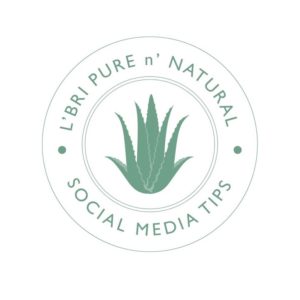- Home
- Announcements
- Facebook Pages vs. Facebook Groups
 As many of you have noticed, Facebook is continually changing the algorithm of its Newsfeed. These continued changes can be rather confusing when you’re making efforts to promote your business. Let’s take a look at the pros and cons of both Facebook Pages and Facebook Groups.
As many of you have noticed, Facebook is continually changing the algorithm of its Newsfeed. These continued changes can be rather confusing when you’re making efforts to promote your business. Let’s take a look at the pros and cons of both Facebook Pages and Facebook Groups.
Facebook Pages
Having a separate Facebook Page for your business gives you the freedom to post, advertise, and focus your content around your business. The main reason to choose a business page over the group is the ability to advertise, as you cannot run advertisements with Groups. Additional benefits of using a Facebook Page are that you can see analytics of the Page, be visible outside of Facebook and add additional applications on the Page.
Pros of using a Facebook Page:
- Advertising: Facebook has powerful advertising tools to help you promote your business and reach new audiences. With a Facebook Page, you get access to the full line of paid advertising options to help grow your business.
- Analytics: Because Facebook knows that you use a Page to attract customers, they provide analytics, which gives feedback about what’s happening on your Page. For example, in your analytics overview, you can see at a glance how many likes, views, post engagements, comments, and shares each page is generating.
Cons of using a Facebook Page:
- Declined reach: With Facebook’s most recent algorithm updates, the organic (non-paid) reach for content published on Pages is steadily declining. Facebook is changing the focus of their platform to show people more from family and friends and less from businesses. That said, organic Page posts don’t get shown in your followers’ News Feeds like they once did.
- Page management is time-consuming: Due to the aforementioned algorithm, you really have to work hard to grow a Page organically, and it can become quite time-consuming. Posts need to be published regularly, and they need to be engaging. Research needs to be done to determine the type of content that your audience responds to and what times of day are best for publishing. Lastly, you need time to respond to comments and private messages in a timely manner.
Facebook Groups
A Facebook Group is made up of like-minded people that come together to discuss and share ideas around common interests. The main difference between a Facebook Group and the business page is better collaboration with the members. A Group is more like creating a community on Facebook, whereas a Page is more like brand promotion.
Pros of using a Facebook Group
- Privacy level choices: Every group is governed by one of three privacy settings that control how people join the group and whether or not people can see the group on the Discover page. You get to choose which level of privacy will work best for your needs.
-
- Public Groups are Groups anyone can join and can be found by anyone through the discover page.
- Closed Groups have an administrator who looks at all requests to join, deciding whether to accept or deny entry into the Group. They’re typically intimate in size and make the Group easier to moderate and maintain a safe place for people to chat with each other.
- Secret Groups are strictly private and don’t appear on the Discover page. The owner of a secret group usually will invite specific people to join.
- Targeted audience: Because you can form a Group around a central topic (like natural skin care), the people inside your Group will be a very targeted and receptive audience. Your posts and comments will be appreciated and supported.
- Relationship building: Since people who join Groups are usually looking to be supported in one way or another, Group members are typically engaged. They are there because they want to learn more, and many are even willing to offer help as well. This type of community is great for building trust and relationships with your Group members.
- Your content will be seen: Since people willingly join Groups of interest, they care about the content shared within the Group. They will receive notifications of new posts and conversations, so they won’t be left to rely on Facebook’s algorithm to determine whether or not they will see the content.
Cons of using a Facebook Group
- Group management can become time-consuming: Just like Facebook Pages, your group needs to be consistently nurtured. If you neglect to provide value within your Group, people will feel inclined to leave the Group. Additionally, if you don’t regularly engage with your Group members when they post or ask questions, members will question whether or not their membership in your Group is valuable.
- Building your audience may take longer: Depending on the security settings you choose for your Group, building your audience may take a little more time than it would for a public Facebook Page. That said, even if your audience takes longer to build, you will likely have cultivated a more dedicated audience that will serve you better than a larger audience that is simply that – larger.
Choosing the right platform within Facebook for your L’BRI business takes a thoughtful approach. There is no cut-and-dry answer as to which is the best platform for you. By weighing out your options with the pros and cons of Facebook Pages and Groups, you can determine which one, or a combination of the two, will work best for you.
